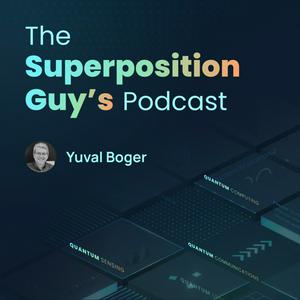Kike Miralles, investment director at Intel Capital, is interviewed by Yuval Boger. They talk about corporate venture investing in quantum technologies. Kike explains Intel Capital’s focus on quantum hardware and middleware, compares leading modalities, and outlines emerging themes like QPU scale-out networking, hybrid classical–quantum error correction, and the growing role of logical qubits as a core metric. He also discusses check sizes and stages, government-heavy revenue, PR and hype in quantum, expected consolidation among hardware players, and what differentiates strong quantum investors and startups in today’s market.


